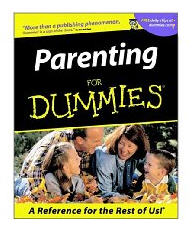If you don’t believe in “the One” – and I don’t – then how can you acquire the skills necessary to marry the right person? Or at least, not the wrong one?
 There’s an interesting discussion brewing at Huffington Post, as Pauline Gaines addresses courses in family dynamics for high school students. The hope is to develop skills necessary for making better relationship decisions. Specifically, the goal is to make better choices when it comes to marriage, and consequently, helping to reduce the likelihood of divorce.
There’s an interesting discussion brewing at Huffington Post, as Pauline Gaines addresses courses in family dynamics for high school students. The hope is to develop skills necessary for making better relationship decisions. Specifically, the goal is to make better choices when it comes to marriage, and consequently, helping to reduce the likelihood of divorce.
Theoretically, if classes were properly structured and well taught, many of these life skills could serve to assist in all relationships.
As for the article on Huff Post Divorce, as usual, some comments are jumping into Land of Gender Generalizations, as those who feel they’ve been wronged in their divorces hurl barbs at the opposite sex. Setting aside that negative noise, what about the possibility of reducing the likelihood of choosing “wrongly?”
Making Marriage Work
Better yet, is there a way to up the odds of marrying the right person – or one who could be more or less “right” for you?
I can think of plenty of ways to increase the probability of marrying the right person. Among them:
- Do not make marriage the “be all and end all” in our culture
- Eliminate the state-specific differences in age at which you can marry
- Require a waiting period before marriage
- Incorporate classes in relationship dynamics as part of Elementary and Middle School curricula, possibly continued into High School
And it is the last point which lies at the heart of the article at Huff Post Divorce.
Still, if these classes (much like Sex Ed) could actually be properly designed, who would teach them? What would they consist of? How to make them “politically correct” in all ways? How might they be incorporated into a variety of other classes – perhaps encouraged through teamwork in core curricula?
Why must these classes be seen purely as stepping into the personal realms of family dynamics?
I will cite my own writing on Making Marriage Work, and the necessity of relationship skills:
… what we really need is relationship education, regardless of purpose…
Wouldn’t we all benefit from learning to get along with each other? To give and take? To clearly state what we need and want? To attentively listen? To negotiate? To reacquaint ourselves with the basics of respect over disdain and narcissism?
Teaching Kids Life Skills
We don’t all grow up in Picture Perfect Two Parent Households. The married parents of my (Boomer) generation frequently involved a mother at home (possibly unhappy at that), and a father who made an appearance on cue – at dinner time, mowing the lawn, serving as tie-breaker disciplinarian.
 As for examples of how two loving adults deal with each other?
As for examples of how two loving adults deal with each other?
Not so much.
Our family configurations today are far more varied and complex. The pressures we live with economically, just to make ends meet, are enormous. Add in the expectations of parental involvement – and we’re frequently overwhelmed. (Naturally, none of this helps our partnerships.)
Surely many of our children aren’t seeing exemplary relationship skills at home, so where will they learn them? Where do we learn them, since despite all the parenting guidebooks, few of us come to the table without scars of our own?
Planting Relationship Lessons for the Future
Is it crazy to think that we could plant the seeds to grow good relationships? To recognize them, to nurture them, to protect ourselves from what is truly toxic? Can we provide models for our kids to learn from – even if we can’t offer two adults in a working partnership, as we raise them?
Ideally, we can experience examples of empathy, communication, conflict resolution, compromise, respect, humor, affection, love – and more – throughout our various communities. Relatives or friends may offer a glimpse, or a significant resource. Yes, our children are sponges – but they can learn from everywhere: They pocket what they absorb – good and bad – and basic relationship skills could assist in making sense of what they’re observing and feeling.
Couldn’t they acquire some of the tools needed for good decisions in all relationships, if we encouraged talking, listening, observing and working together?
Teacher Expectations – Overload
I don’t believe we should expect miracles of our educators. They’re already overworked, underpaid, undervalued in our culture – and far too pressed to help our children “succeed” rather than to help them learn. As it is, they are often asked to play parental roles, or to take on more responsibility that the child ought to own.
Years ago, I volunteered in the public elementary school my boys attended. I was working full-time as well, but my employer cut me some slack now and then so I could run an occasional art project. I would show up with bags of supplies, and assignments that encouraged individual imagination, and also a team goal.
 By 4th and 5th grades, the kids were very receptive to principles of planning, communication, and necessary collaboration. These are easier to build on when you’ve laid the groundwork.
By 4th and 5th grades, the kids were very receptive to principles of planning, communication, and necessary collaboration. These are easier to build on when you’ve laid the groundwork.
And frankly, we’re talking basics to those of us with experience in the corporate world, and principles that are not so different from what is taught through team sports – but without the win-lose mentality. And it’s that win-lose dynamic that is often so damaging in our romantic relationships.
Cooperation, Collaboration, Communication
In one example of a class project, the students quickly understood that if a project required cooperation of everyone, that meant choosing a leader to coordinate and follow up, compromising in order to work together, and communicating when there was conflict.
It also meant some sensitivity to their team members – who was tired, who was having a bad day, who had something on his mind, who was struggling with the task. Observing, assessing, asking questions, listening.
10-year olds, 11- year olds, 12-year olds?
They’re more than capable of these skills – if we model them, and guide them through the process. And maybe management-type exercises – and parents with these skills – are part of the answer.
And Marriage? Remarriage?
I can’t say that I will ever marry again. I gave my idealism and my trust once; when you experience lies in marriage – by omission or commission – when you have suffered abuses of various sorts, when you have seen or felt yourself becoming someone or something “less” than you are, it’s difficult to imagine yourself in a position of potential vulnerability again.
When the marriage is over and the trail of shadows continues, it becomes even more difficult to imagine taking the plunge again.
Allow me to clarify: I have difficulty imagining myself in such vulnerable territory ever again.
 Still, I believe in love, respect, intimacy, and sharing life as a couple in a committed relationship with someone I cherish.
Still, I believe in love, respect, intimacy, and sharing life as a couple in a committed relationship with someone I cherish.
How that arrangement is configured?
Marriage: Have It Your Way
My idea of a committed relationship may not resemble yours, but then, it really doesn’t have to. It may not involve the sacraments (or legal intricacies) of marriage. Then again, there’s the story of those 90-something newlyweds. Never say never, right?
For those who do wish to marry, I return to the importance of truly knowing who it is you are joining your life to, as your family. I repeat my usual refrain – the necessity of time together, of shared values, of hearing and voicing each others’ needs in non-damaging ways, of like libido.
It’s impossible to guarantee anything when it comes to the human heart or our behaviors, much less what life will throw our way to deal with. But surely, education of all sorts cannot hurt, and if achieved – as the article suggests – possibly do a great deal of good.
You May Also Enjoy
As you suggest, there are many ways to teach relationship dynamics to kids. My daughter goes to a progressive preschool where learning is based on the kind of collaboration you witnessed in the art class you taught. One thing that concerns me now is our Bully Culture — which I believe trickles down from the top, from individuals who let corporate greed obliterate the rights of the 99%. How do we teach kids to have empathy, to demonstrate reciprocity when the greater culture teaches the opposite? I’m veering slightly off-course here, but, yes, we need to do SOMETHING to teach kids the importance of relating to others with respect.
A digression, yes, but it’s all interrelated, Pauline. And you’re right to point that out. It’s hard to teach kids to relate to others respectfully when we live in a culture that no longer gives air time to the value of that respect.
“Still, if these classes (much like Sex Ed) could actually be properly designed, who would teach them?” I’d teach them! Of course, I’d get yanked after the first day.
You have two topics here: Marrying the Right One; Making Marriage Work. The crucial topic is the first one. A good marriage certainly requires time and listening and thinking and respect, but need not (should not) be a huge struggle. The reason we hear so much of the struggle is because the former advice was not followed. Been there, done that. And if you can’t actualize the former topic (finding the right one), everyone is better off not marrying. It is what it is. Move on.
Gotta get the right woman. Fran and I are strongly individualistic and we can carry on, but that’s us, and we know things will be okay, with ups and downs, even when I know she’s totally wrong. 🙂
You and Fran – Are you the exception, Paul?
It’s a sincere question. How many people genuinely believe they have found the “right one” for them?
In my own experience, there are several individuals I think I could have made my life with. If we assume that love was a given in each case, but just one factor among many that enables two people to build a life together and grow in compatible ways, isn’t it conceivable that with the “right skills” – we could make a good life with more than one person?
Yes, it is a blending of two topics. But I’ll go with that, rather than viewing them as separate. A little “blending” never hurts, after all…
I think teaching kids from an early age how to foster relationships, how to resolve disputes, how to express their needs and their emotions is the essential work of society. Without these skills, nothing much works. I certainly think it could help relieve bullying issues too.
Now, in terms of picking the right person – oh, how does one do that? I think you have to know yourself first and know your partner (but circumstances change us). Maybe more essential is sharing values (those can shift too)? But are these teachable skills? Can you teach self respect? Or how to see through lies? Or are those slowly built over time?
I am in a good marriage – we respect each other, we listen, we care about what matters to the other.
“Are you the exception, Paul?” Who, me? Unusual perhaps, although my parents had a fine marriage. Fran’s sometimes not easy, but she’s brilliant/interesting (among other things) and she loves me. We just finished one of our big debates, this time on the topic of this “thing” she found in the garden – a large brown pupa of something, about three inches long. It moves a bit in your hand, else you would think it was a dirty pine cone. I said that it was a locust pupa, based on size and past reading of PA state brochures on the topic. She checked, and there were certain inconsistencies. “How could you say that it was a locust pupa without saying ‘I THINK it is a locust pupa’?” After a lot of computer search, we are now agree that it is likely the pupa of the Tomato Hornworm, sometimes known as the five-spotted hawkmoth (more properly Manduca quinquemaculata) but it might be a Manduca sexta. We’ve got the critter in a clear plastic box and we agreed to agree rather than do a dissection to establish the number of spots the moth would eventually exhibit. In either case, this one is NOT going to get to munch on our tomato plants.
I do believe that the key is not the person per se, but to find a person who is right for you and you for them. I did a massive search before meeting Fran. I met one other person years ago who would have been right, except for her terminal cancer. So it goes.
I totally agree that we should make it harder to get married rather than divorced. I seem to always know someone that would be divorced if they could afford it. More often than not, they find a way and while it’s not easy, they don’t regret it. Does it belong in our classrooms? Probably not as a standard, but certainly exploring the idea of relationships in the books they’re reading would be worthwhile, and in history. We’re so busy naming heroes and villains, but more often than not, these historic figures were people, too; struggling with relationships, mommy/daddy issues, and finding their place in the world.
Oh, where to begin on this one!? I think a couple needs to see each other in every “season” to make an honest assessment of whether they should be together. And by season, I mean the good, the bad and the ugly because I really believe that to love someone is a decision, not necessarily a feeling/emotion. Feelings and emotions can change with the wind. I think couples have a better chance of success if their core values are the same. Opposites may attract, but staying power comes when, deep down, couples are on the same page about the things that are most important.
So many times in our culture, we decide we’re not “in love” anymore when we’re really saying “You’re not meeting my needs anymore.” A marriage is not always about getting my needs met. How selfish is that? People change over time; desired change over time; needs change over time. So many people throw in the towel when the going gets rough, not realizing that if they can outlast the rough patches, there’s a good chance their marriage will be stronger because of it. I’m not advocating staying in a truly abusive marriage, but think it’s far too easy to get a divorce for any reason. It’s not a bond that should be entered into on a whim or without much thought and counsel.
Thank you, and now I’ll step down off my soapbox. 🙂
I like your soapbox, Lisa, and your view of knowing your partner through all seasons. And I agree that to love someone is much more than a set of emotions. A decision, yes. Would that we took the time to make it an informed one. So glad you stopped by on this topic. As a part of a still married long-time couple, I’d say you have plenty of experience to bring to the conversation. How many of us can say the same?
Re: the “right” one. My theory is you want a killed virus. The person who has all those hooky things that you can’t resist because of your own vulnerability, but whose had enough life or therapy or disasters under their belt to neutralize their lethality. And of course, to tell the killed virus from the virulent one, you need to have had the same under your belt.
Wow, Wolf.
Double-wow re the killed virus. Very profound. I never would have thought of that analogy, but the logic certainly holds.
Some of my wife’s thoughts on the topic of how to marry the right person.
: